Elders
Develop an appreciation for contributions of Elders, Knowledge Keepers and Cultural Advisors and their promotion of individual and community beliefs, attitudes and values.
To begin, select a category from the menu.
In many First Nation, Métis and Inuit communities, Elders keep people connected to each other, their lineage and histories. As Knowledge Keepers, Elders transmit customs and traditional practices that reveal a living culture and help individuals embody a sense of identity. In this part of the journey you will become familiar with how Elders assist their communities in many ways, from cultural advisors to historians to social activists.
Elders Mavis and Frank schedule a visit with Erin.
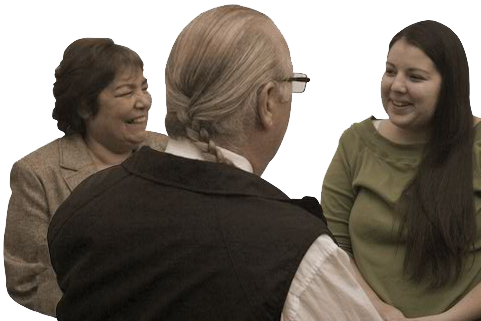
Erin has a number of students in her class who identify as First Nations, Métis and Inuit. During the first meeting, Erin explains that when these students were in Division I, an Elder shared a general, whole-class presentation on traditional values. Erin is now looking for information on cultural differences, realizing she needs to be aware of gender roles. After indicating they have the expertise to share information on cultural traditions, Mavis and Frank see an opportunity for an Elders-in-Residence project in this urban setting where students’ cultural backgrounds are varied.

Mavis, who is a local Métis leader, would work with the girls, teaching them about traditional women’s roles from her Métis-Cree perspective. According to his custom, Frank would determine the types of projects he would undertake with the boys during the same time period. This project leads Erin to reflect upon Elders as mentors and co-educators throughout the curriculum and school environment. She considers the range of skills, knowledge and areas of specialization that Elders share with people in their communities.
Erin also thinks about the individuals whom she’s turned to with personal or professional questions when making a decision or looking for information.
When I have a question in my professional or personal life, I go to …
In First Nation, Métis and Inuit communities, the advice of Elders, Knowledge Keepers and Cultural Advisors is held in high regard.
We are privileged and honoured to share the words of some individuals from communities across Alberta.

Victor Prinz | Métis | East Prairie Settlement
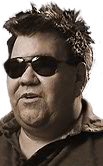
I vision, as a Métis person, as an Aboriginal person of Canada, we have two worlds. We have to learn the European way of life—the education system—we have to get Grade 12; but we also should be learning our Native way—our language and our culture. We should be putting them together like two roads. We’ve got to keep crossing the two roads by teaching both in the same classroom so children learn who they are, where they come from and how we came to be as Métis people.
A respected Elder from East Prairie Métis Settlement, Victor Prinz passed in 2009.
Allen and Viki Jacob | Dene Suliné and Blackfoot/Métis | Cold Lake First Nations
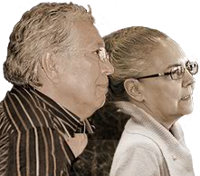
The most vulnerable identifiable group of peoples in Canada is Indigenous youth. Statistics substantiate these concerns. These young people are being systemically (and systematically) disinherited from their birthright cultures, languages and healthy self-definitions. As Elders, we have always maintained that mainstream attempts at assimilation are destructive, not only to the targeted peoples but to the mainstream society as well.
Allen and Viki are actively involved in helping youth in a variety of ways in their community. They work individually and as a couple.
Alvena Strasbourg | Métis | Métis Nation of Alberta
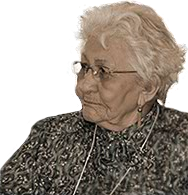
I used to have a lot of fun working with people. I’m not retired yet. I’m with Métis Child and Family Services. I work with Métis foster kids. I also go to the schools—I’m a Métis Elder and go all over where I am called. I even go back to the oil companies and do cross-cultural training.
Alvena Strasbourg has been involved in employment and education initiatives for Aboriginal People across Alberta for many years. Alvena passed in 2016.
George Brertton | Cree | Saddle Lake First Nation
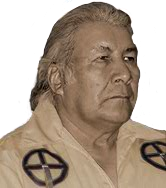
In our cultural teachings there is always gentleness. I had an old lady who taught me, as a mentor. She taught me the ceremonies, how to forgive, love and kindness. All those things which I never knew existed in residential school. So, it forced my life to change drastically, to become a different person.
George Brertton was a Resident Elder at Blue Quills First Nations College. George passed in 2013.
Narcisse Blood and Alvine Mountain Horse | Kainai | Blood Tribe
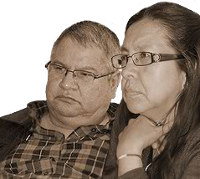
Our Elders teach us that the Creator placed us here with the four-legged and the birds, who taught us how to live and survive. In return we must be respectful to them. Our Creator gave us our Blackfoot language in order to fully understand and appreciate the vast and sacred knowledge of this land. We believe in including Blackfoot language and culture in our schools because the teachings of grandparents and ancestors helps students know who they are.
Alvine is respected for her knowledge of the Blackfoot language, and Narcisse, known as a Kainai Eminent Scholar, shared his ways of knowing with post-secondary learners. They worked individually and as a couple. Narcisse Blood passed in 2015.
Eva Bereti | Plains Cree | Urban Edmonton
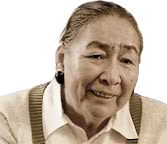
I’m so lucky to be given so many little spirits to work with over the years. Little kids teach you something every day: forgiveness and real, unconditional love. I’m so fortunate. It’s never too late to learn.
Eva’s long career in education has allowed her to share her gifts as a teacher, counsellor and volunteer.
Sykes Powderface | Nakoda | Chiniki First Nation
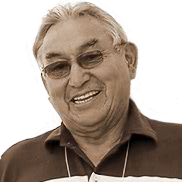
Our treaty rights confirm our status as a sovereign nation, and we exercise our rights and access to the traditional and ancestral territories occupied and inhabited with other Aboriginal peoples from time immemorial. As First Nations People, we maintain the right to continue our historical, traditional, cultural and spiritual connections to the land.
Sykes’ work with the repatriation of the Canadian Constitution provided him with a comprehensive understanding of treaties and rights.
Nellie Carlson | Cree | Saddle Lake Cree Nation
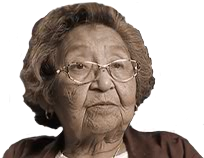
As the First People of this country, it is important that we keep our identity, of who we are. We have this culture so beautiful and sacred. We should be very proud of how our people survived in the past. They had the sweat lodges. The Elders taught kindness and responsibility. They talked to you very gently and were knowledgeable about histories and stories.
Nellie Carlson, who was among those women who marched to Ottawa to reinstate “Indian Rights for Indian Women,” has been an advocate for Aboriginal education since the 1970s.
Reflection Statement
Elders, Knowledge Keepers and Cultural Advisors are the key transmitters of traditional wisdom and historical knowledge in First Nation, Métis and Inuit communities. Respected for their life experience, they hold specific types of knowledge, valuable to people and leaders in their communities. It has been said that a group of Elders is similar to a library or online encyclopedia.
In what way has a knowledgeable person or mentor provided you with guidance and support in your teaching career or personal life?
Educators in Wetaskiwin School District talk about involvement of Elders in district schools.
The speakers in these interviews provide insight into the roles and practices of First Nations, Métis and Inuit Elders and the value they offer as educators.
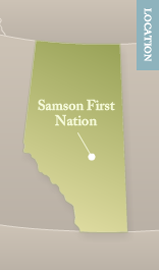
Kevin Buffalo | Plains Cree | Samson First Nation
Teacher Kevin Buffalo from Samson First Nation explains the many roles that Elders fulfill.
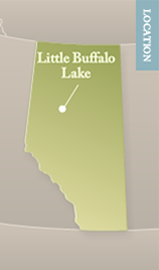
Billy Joe Laboucan | Woodland Cree | Little Buffalo Lake
Billy Joe Laboucan, Woodland Cree linguist and storyteller, shares his understanding of how Elders use teaching stories.
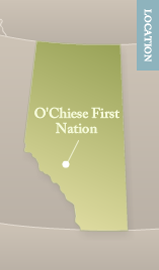
Theresa Strawberry | Saulteaux | O’chiese First Nation
Theresa Strawberry, Saulteaux educator, talks about how people in her community become acknowledged as Elders and provides a brief overview of the wide variety of roles for Elders.
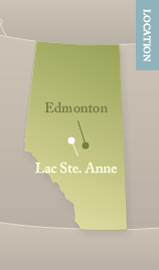
Marge Friedel | Métis Nation of Alberta Region 4 | Urban Elder
Métis Elder Marge Friedel provides insight into ways to approach and show respect for an Elder and discusses what can be learned.
While Marge Friedel passed in 2011, we are privileged and honoured to still have her words to share.
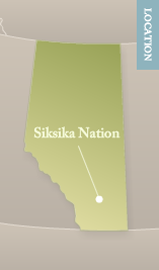
Kathy Yellowhorne-Breaker | Siksika | Siksika Nation
Kathy Yellowhorne-Breaker, Siksika educator, shares an example of how involvement of community Elders was a positive force in a student’s life.
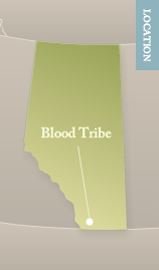
Maggie Cress | Kainai | Blood Tribe | Urban Aboriginal
Maggie Cress, of Kainai background, explains how an Elder’s story can prompt a person to think deeply.
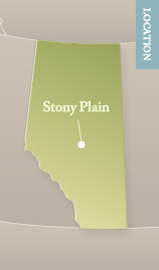
Elder in the Classroom
Elder Wilson Bearhead of Paul First Nation visits a Grade 5 Health class at Stony Creek School, Stony Plain, and shares some Nakoda wellness teachings.
Select a resource type from the list.
Web Links
While some First Nations, Métis and Inuit experts have recommended these web links, they are not authorized by Alberta Education.
Interviewing Elders Guidelines from the National Aboriginal Health Organization
These guidelines are intended for journalists. Brief information is provided on the use of tobacco, offerings and ceremonies, and on how to approach an Elder.
Elder Protocol and Guidelines
The University of Alberta has created guidelines when seeking the council of Indigenous Elders. These guidelines are a comprehensive look at who Indigenous Elders are and the protocols involved when approaching an Elder. These guidelines are based on interviews conducted with Elders and Knowledge Keepers.
Guidelines for Working with Elders. Centre for Indigenous Initiatives, Carleton University
Protocols for Elders as shared by Carlton University for reference when approaching an Elder for guidance. These guidelines are also applicable when working with Elders in establishing a respectful relationship in your local area. Information is provided on the purpose for an invitation to seek information, protocol offering to who and for what reason, a follow-up, and honoraria for time and information shared.
Documents
While some First Nations, Métis and Inuit experts have recommended these documents, they are not authorized by Alberta Education.
Elders. Education Is Our Buffalo. The Alberta Teachers’ Association
This excerpt from Education Is Our Buffalo provides a brief introduction to Elders.
Elders and the Oral Tradition. Aboriginal Perspectives
The role of Elders in preserving and transmitting the oral tradition is introduced in this excerpt from Aboriginal Perspectives (Aboriginal Studies 10).
Welcoming Elders. Our Words, Our Ways. Alberta Education
Elders are always to be treated with great respect and honour. This excerpt from Our Words, Our Ways provides information about approaching an Elder, hosting an Elder in the classroom and thanking an Elder.
Elder Wisdom in the Classroom. Ramona Big Head
Ramona Big Head, a Ph.D student at University of British Columbia and an instructor at the University of Lethbridge, addresses questions such as, Who is an Elder? How would one invite an Elder to the classroom? What is protocol? How do I honour Elder wisdom in the classroom?
Select a video from the list.
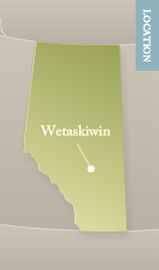
Elders in the Classroom
Educators in Wetaskiwin School District talk about involvement of Elders in district schools.